Israel: Home of Hope (animated video)
Rabbi Sacks on the connection between Ezekiel’s Vision of the Valley of Dry Bones and the creation of the modern State of Israel.
Share
This new animation illustrates Rabbi Sacks' narration included in the album Israel: Hope of Hope, originally produced to celebrate Israel's 60th anniversary in 2008, and now re-released in 2023 for the 75th anniversary.
Captions are available on the video in English, Hebrew, French and Spanish. Select the 'settings' button to find your preferred subtitles on the video player.
It was the most haunting of all prophetic visions. The prophet Ezekiel saw a valley of dry bones, a heap of skeletons.
God asked him, “Son of man, can these bones live?” Ezekiel replied, “God, You alone know.”
Then the bones came together, and grew flesh and skin, and began to breathe, and live again.
Then God said: “Son of man, these bones are the whole House of Israel. They say, ‘Our bones are dried up, avdah tikvateinu, our hope is lost.’ Therefore prophesy and say to them: ‘This is what the God says: My people, I am going to open your graves and bring you up from them; I will bring you back to the Land of Israel.’”
It was this passage that Naftali Herz Imber was alluding to in 1877 when he wrote, in the song that became Israel’s national anthem, Hatikvah, the phrase od lo avdah tikvatenu, ‘our hope is not yet lost.’ Little could he have known that seventy years later one third of the Jewish people would have become, in Auschwitz and Treblinka and Bergen-Belsen, a valley of dry bones. Who could have been blamed for saying ‘Our bones are dried up, our hope is lost’?
And yet, a mere three years after standing eyeball-to-eyeball with the Angel of Death, the Jewish people, by proclaiming the State of Israel, made a momentous affirmation of life, as if it had heard across the centuries the echo of God’s words to Ezekiel: veheveti etchem el admat Yisrael, ‘I will bring you back to the Land of Israel.’
And a day will one day come when the story of Israel in modern times will speak not just to Jews, but to all who believe in the power of the human spirit as it reaches out to God as an everlasting symbol of the victory of life over death, hope over despair.
Israel has taken a barren land and made it bloom again. It’s taken an ancient language, the Hebrew of the Bible, and made it speak again. It’s taken the West’s oldest faith and made it young again. It’s taken a tattered, shattered nation and made it live again.
Israel is the country whose national anthem, Hatikvah, means ‘hope’.
Israel is the home of hope.
This educational resource is designed for students of middle and high school age, as a companion to the animated video “Israel: Home of Hope”, narrated by Rabbi Sacks.
This video has been generously sponsored by Dangoor Education
More Animations

The Everlasting Flame (Yom Ha'atzmaut animation)
Watch Rabbi Sacks’ message on the true courage of Israel
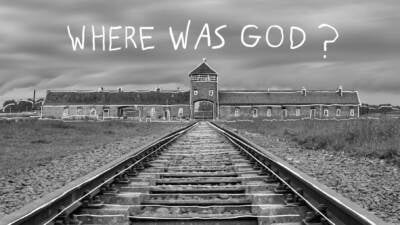
Faith After the Holocaust
Rabbi Sacks responds to the devastation of the Holocaust
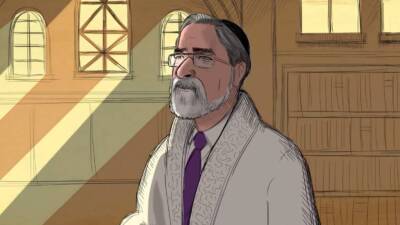
Time (animated video)
Watch Rabbi Sacks’ view on the Jewish way to understand time.
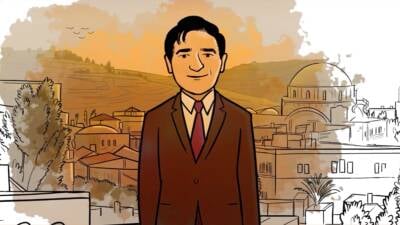
Connecting to God (animated video)
With audio recorded by Rabbi Sacks in 2010, here is a new animated video of the three key ways we can each connect to God.
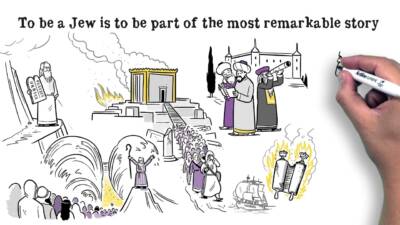
Being Jewish (animated video)
An animation on understanding our identity and our Jewish heritage.

Morality (animated video)
“We need to restore that sense of collective responsibility…”
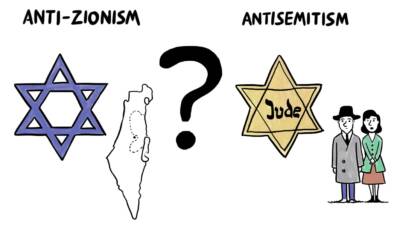
The Connection between Judaism and Israel
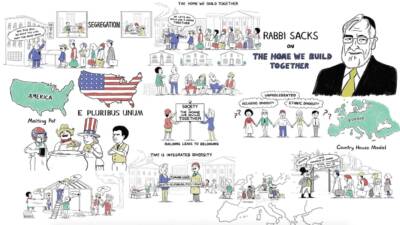
The Home We Build Together (animated video)
How can we create a healthy, sustainable society? Does building lead to belonging?

Rabbi Sacks on 'The Great Partnership'
Do Religion and Science Always Contradict Each Other?
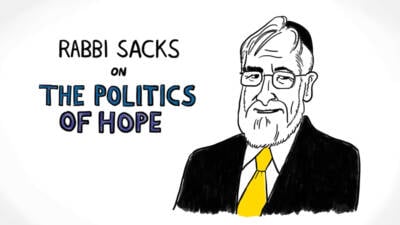
Rabbi Sacks on 'The Politics of Hope'
Can we create a new kind of politics?
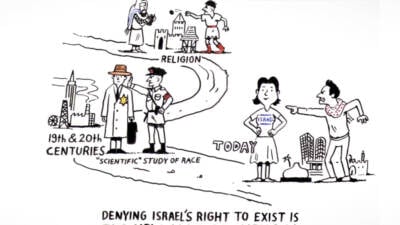
The Mutation of Antisemitism
What is antisemitism, and how has it changed over the centuries?
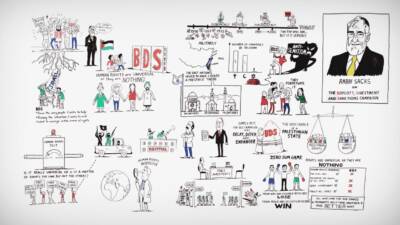
On the Boycott, Divestment and Sanctions (BDS) campaign
Why is it important to understand and oppose the BDS campaign?
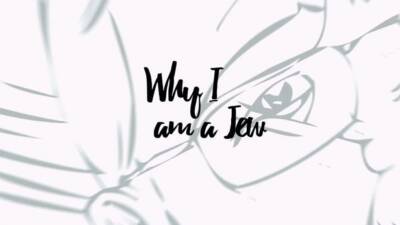
Why I am a Jew
An animated video on Jewish identity and finding your Jewish purpose
More Yom Ha'atzmaut Addresses

The Everlasting Flame (Yom Ha'atzmaut animation)
Watch Rabbi Sacks’ message on the true courage of Israel

Israel at 70
The Everlasting Symbol of Hope

Yom Ha'atzmaut 5773: The Everlasting Flame
An inspiring speech delivered at Finchley Synagogue (Kinloss)

Yom Ha'atzmaut 5772: Believing in the Power of Possibility
Bnei Akiva service at Finchley Synagogue

Yom Ha’atzmaut 5771: From Grief to Joy
Bnei Akiva service at Finchley Synagogue


